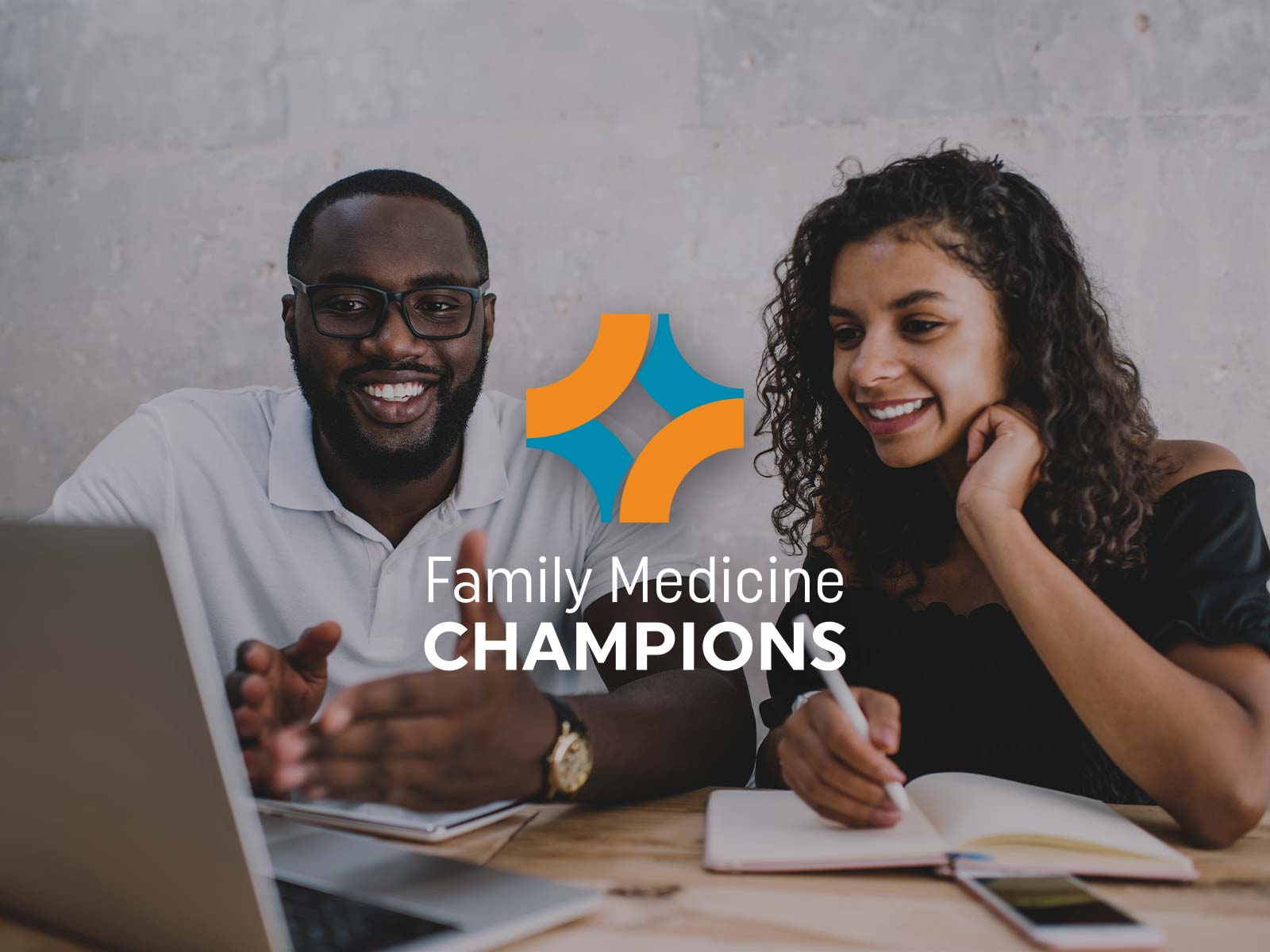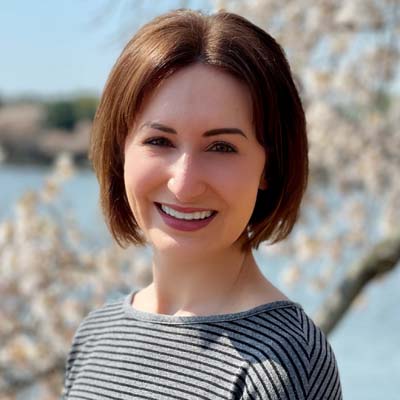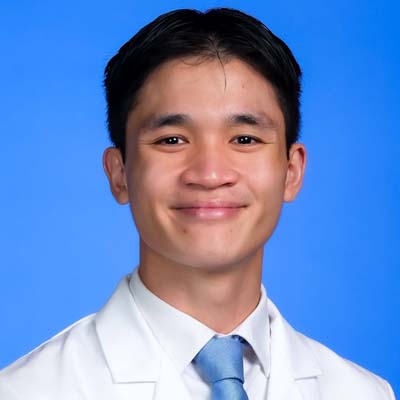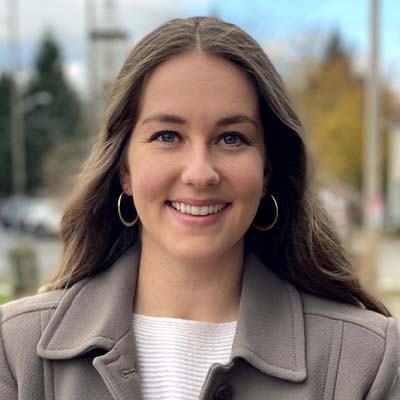Family Medicine Champions urge peers to join 'essential' initiative
June 19, 2025, David Mitchell — Residency program directors and staff; family medicine interest group faculty advisors and student leaders; chapter staff and premedical school advisors are invited to join the next cohort of the Family Medicine Champions program, which begins in late August.
Family Medicine Champions, the AAFP’s free, self-paced certificate program, trains participants to be ambassadors for family medicine and to educate aspiring health care workers about the diverse career options available in the specialty. The program prepares participants to connect with students, and those who support them, to shed light on what it means to be a family physician. Champions are equipped to provide information, tools and support to help recruit a diverse workforce and share a positive vision for the future of family medicine.
AAFP News recently spoke with three participants about their experience with the program. The deadline to register for the next cohort is Aug. 15.

Why should your peers participate in Family Medicine Champions?
Christina Kelly, MD, FAAFP, associate professor in the Department of Family Medicine at the Uniformed Services University of the Health Sciences in Bethesda, Maryland: Participating in the Family Medicine Champions program gave me a refreshed and more intentional approach to how I talk with students about family medicine. As a faculty member and FMIG advisor, I had been advocating for the specialty for years, but the program offered new tools, structured language and strategies that helped me become more effective. I also learned so much from the other participants—student leaders, school career counselors and advisors, and chapter staff—who brought unique perspectives and innovative ideas to the table. Completing the program sharpened my skills and connected me to a broader community working toward the same goal: strengthening the pathway to family medicine.
Jonathan Bakly, third-year student at the Touro University Nevada College of Osteopathic Medicine: One of my goals as a future family physician is to continue advocating for the specialty and to persuade more of my classmates and other students to consider a career in primary care. The Family Medicine Champions program was the perfect opportunity for me to learn more about how I could further my involvement with family medicine and to also then share it with those around me. I would recommend students participate in this program because it is a unique opportunity that you wouldn’t be able to find elsewhere. It is online, self-paced, interactive, yet not extremely time consuming. Other students that are interested in family medicine would find this to be a great opportunity to delve deeper into what a career in family medicine could look like and be connected with others with similar passions.
Caitlin Laudeman, workforce development manager at the Ohio Academy of Family Physicians: The Family Medicine Champions program is an excellent learning opportunity for chapter staff. I knew the basics of the family medicine pathway, but after completing Champions I had a more robust understanding, resources to reference and share with students and family medicine faculty, and a network to collaborate with on future ideas. I highly recommend the program for chapter staff who work with medical students.
What are you doing differently to promote family medicine after participating in Champions?
Kelly: Before the training, I was aware of advocates and stakeholders who also were working to increase student choice of family medicine, and I often found myself working alongside them, not in direct collaboration. After participating in the Family Medicine Champions program, I better understood the value of aligning our efforts from the start. When we work together intentionally rather than in parallel, our collective impact is far greater. Now, I seek out opportunities to partner early with other stakeholders to create more coordinated, visible and sustained support for students considering family medicine.
Bakly: The Champions program further equipped me with statistics and anecdotes to further reinforce my passion for family medicine, and it also provided me with new examples of what a career in family medicine could look like. The program allowed me to better explain to my peers the various lifestyles and careers a family medicine physician can have, and it also has allowed me to provide them with resources that I wasn’t previously aware of. I recently attended the Nevada Academy of Family Physicians advocacy day in Carson City, where I was able to speak with state senators and assembly members to advocate for family medicine. Family Medicine Champions equipped me with the necessary information, examples and skills to build the confidence to attend an event where I truly felt like I was able to make an impact.
Laudeman: Champions expanded my understanding of the facets of family medicine that I hear a lot of questions about: What is family medicine? What does the educational pathway look like? What does a career in family medicine provide? What are the financial barriers, workforce outlooks, etc. I had a good basic understanding of these topics, and the program provided additional examples and resources in these areas to share with medical students when talking about family medicine. The presentations and conversations I share with students are now more tailored to their individual experiences, and I can follow up with resources from the program that correct myths about family medicine and support them in their next steps.
Have you put new skills and information from the Family Medicine Champions program to work?
Kelly: Yes, a practical tool I started using right away was the language around addressing common misconceptions. I restructured how we introduce family medicine during FMIG events. We started leading with stories, emphasizing the breadth of our work, and gently challenging outdated ideas about the specialty. The result has been more student engagement and curiosity.
Bakly: When talking to new students who are potentially interested in family medicine, I constantly find myself referring to the resources that the program provided. This allows me to show how family medicine is such a supportive specialty that encourages student participation and growth, which further inspires people to choose a career in the field.

Christina Kelly, MD, FAAFP

Jonathan Bakly

Caitlin Laudeman
Laudeman: I really liked the module covering student resources and support. In my work I typically interact with student group leaders and students looking for something that will give them another connection point to family medicine—programming, leadership roles, events, etc. Through this they broaden and reinforce their understanding of family medicine and move further along their pathway. Since participating in Champions, I’ve been making a very intentional effort to give students something in addition to their initial ask to give them one more connection point and hopefully bring them back again. If a student reaches out about an upcoming event and I know of a physician who loves to connect with students about the same topic, I make sure to introduce the two of them. If a student applies to a leadership position at the Ohio Academy, I make sure to link them to the AAFP’s opportunities even if the application cycle isn’t open so they can think about applying and be ready when it is. I’m looking forward to seeing the growth in connection within our family medicine community in Ohio and the support that comes with it.
What was your biggest takeaway as a Family Medicine Champion?
Kelly: Sharing our stories about family medicine is one of the most powerful tools we have. Students don’t just need information about the specialty; they need to see who we are, what motivates us and how we live our values in our careers. The Family Medicine Champions program gave me the structure to do that in a more intentional and comprehensive way.
Laudeman: My biggest takeaway is how many people there are—medical students, faculty, chapter staff—who are energized about family medicine and working hard to share their interests and connect with students who are thinking about a career in primary care. It’s a huge group with so many skills, great ideas and broad reach. By taking part in Champions, we’ve built connections in our cohort and can share the resources we have with each other to advocate for family medicine in new ways.
Bakly: Anyone can be a champion for family medicine. Though there are many similarities between family physicians, there are also many differences that make them unique. One family physician’s life may look drastically different from another’s. With that being said, I believe it is important for all students to consider taking a closer look into what a career in family medicine may look like for them. The Champions program provides students with the resources and network to further look into a career in family medicine and to then continue advocating for it.
Why is this program is important to the future of family medicine?
Kelly: This program is essential because it equips trusted messengers with the skills and confidence to influence career decision-making in a positive, informed way. It helps demystify the specialty, especially for students who may not have role models in family medicine. When students hear clear, compelling and consistent messages about what we do and why it matters, they can more easily see themselves in this career.
Laudeman: It’s an easily accessible tool to set up new and long-term advocates of family medicine with resources and knowledge to guide students to family medicine, and it lowers typical barriers—fully understanding family medicine, the immense need for primary care and its benefits for patients and communities; knowing what the educational pathway looks like; realistic financial information and support; and connections to resources and mentors for their future. Completing the program gives Champions a solid platform to advocate from, and it makes it so easy to bust myths about the specialty and introduce the wide variety of opportunities for family physicians.
Bakly: Many medical students are unaware of what family medicine truly has to offer. This relates to what a future career can look like: salary, career opportunities, work settings and more. The Champions program provides a snapshot into all these aspects of family medicine, all while being on an easily accessible and user-friendly platform. The modules are quick, concise and allow for interaction with other participants to gain further perspective about the specialty. Making this program more accessible to medical students will help improve student interest in choosing a career in family medicine.
What was your favorite module in the Family Medicine Champions program?
Kelly: My favorite module focused on understanding student aspirations. I especially appreciated the rich discussion among all program participants about how we meet students where they are in their journey. We’re engaging with students at different stages of becoming a physician, and this module helped me think more intentionally about how to support and inspire them based on their evolving goals and perspectives.
Laudeman: I learned a lot from the workforce projections module. Most people—if not everyone—working in the primary care space is aware of the shortage of primary care physicians and that primary care provides the best health care. This module had a ton of data to show current status and future projections, both with breakdowns for how shortages in primary care affect communities, health systems and individuals. These breakdowns and examples gave me a better understanding of the state of primary care and the factors that affect it.
Bakly: One of the modules showed a day in the life of various family physicians. This was great insight into the various settings and pathways that are offered. There are so many different ways to be an effective family physician, and it was great to hear about how people’s day-to-day schedules could differ. This included the setting they worked in, the goals of their careers, the people they worked with and more. It was inspiring to see these clips as someone that is passionate for a career in family medicine.
Students, family physicians and others have busy schedules. What would you say about the time commitment?
Kelly: It’s absolutely manageable. The modules are designed with flexibility in mind. You can complete them at your own pace, and the total time investment is reasonable compared to the impact it has. I’d say it’s one of the most efficient and energizing professional development opportunities I’ve participated in. It gave me language and tools I now use regularly.
Laudeman: This investment is worth it. The program is flexible so it’s easy to work with your schedule. The modules are completed on your own time, about an hour or two a month. The group discussions are just once a month and are a great addition to the self-guided learning component. The discussions brought new perspectives and ideas from students, physicians and chapter staff from all over the country to incorporate into my work. The time I put in to participate in the program was well worth the experience and knowledge gained.
Bakly: The schedule for the program is manageable. I was a part of the self-paced online cohort, so I was able to do it on my own time and still get a meaningful experience. For those worried about the time commitment, this is a great way to still be involved with the program and learn valuable information. Overall, the online modules were not too long, and I was able to do one once a week, or I was able to catch up the week after and do two. The online program is flexible and definitely takes into consideration how busy students can be.